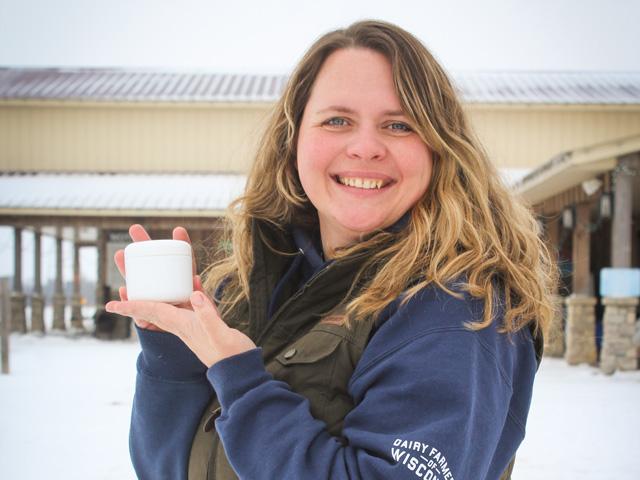CropLink
China Traits Up
China has opened its doors to additional biotech traits. The move marks the end of a 1½-year lag in the country’s willingness to issue import approvals and comes in time to pose some interesting scenarios for the 2019 planting season.
Newly approved corn and soybean traits are:
> Enlist E3 soybeans (DAS-44406-6): tolerance to glyphosate, 2,4-D choline and glufosinate herbicides; co-developed by Corteva Agriscience, agriculture division of DowDuPont and MS Technologies.
> Qrome corn (DP 4114): tolerance to glufosinate herbicides, along with a new molecular stack of current Bt proteins targeting both above- and belowground insects; owned by Corteva Agriscience.
> MGI soybeans (SYHT0H2): tolerance to mesotrione, glufosinate and isoxaflutole herbicides; developed by Syngenta and Bayer, and now owned by Syngenta and BASF.
ENLIST AN OPTION
USDA deregulated the Enlist trait systems in corn, cotton and soybeans in 2014, but, lack of Chinese approval delayed commercialization and allowed dicamba-tolerant technology to gain an advance market foothold.
Soybeans tolerate 2,4-D better than dicamba. On the flip side, cotton is supersensitive to 2,4-D. “Midwest farmers, especially those with sensitive neighboring crops, are very interested in trying the Enlist soybean trait, and our hope is to get as many of our customers to experience it as possible this season,” says Todd Burrus, Burrus Seed Co., Arenzville, Illinois.
However, at press time, Enlist E3 still did not have import approval in the Republic of the Philippines. Corteva Agriscience is going ahead with a full commercial launch in 2019 in Canada, which does not export a significant amount of soybean meal to the Philippines, says Mike Dillon, Corteva global soybean portfolio lead.
P[L1] D[0x0] M[300x250] OOP[F] ADUNIT[] T[]
In the U.S., Corteva Agriscience plans to restrict commercial offerings of Enlist E3 until that final approval is in the quiver. First-half 2019 activities will focus on expanding grower experiences with Enlist E3 soybeans through demonstration plots, field technology days and other opportunities.
“It’s not a matter of how much seed is available as it is a logistics issue to get seed treated and moved to market when the approval comes,” Burrus adds. “The earlier that happens in the season, the more seed supply is likely to be available.”
To speed things up, Burrus says his company is currently taking reservations to identify interested accounts. They will have five Enlist E3 varieties ranging from 2.5 to 3.9 relative maturity.
Stine Seed Co. is also accepting customer reservations for planting in the event final approvals are issued, says David Thompson, who oversees marketing and sales for Stine.
“We are still hoping to get some into grower’s hands for planting in 2019,” he says. “In the meantime, we are working hard to secure as many seed acres as we can. Growers who choose to grow seed on contract for Stine can order and take delivery of Enlist E3 seed stock now,” Thompson says.
By the fall, Corteva Agriscience will be readying for a full commercial launch in the U.S., Dillon adds. “For 2020, customers will be able to access significant volumes of this trait from many seed companies,” he says. Maturity ranges for Enlist E3 soybeans will range from Group 0 to Group 5, he adds.
PICK YOUR PLATFORM
This completes the Enlist technology portfolio. In 2018, Enlist cotton reached 1.5 million acres in the Cotton Belt, and Enlist corn fields could be found in Iowa, Kansas and southern Minnesota. Some farmers planted Enlist E3 soybean acres in 2018, either for seed production or in a closed-loop system in a marketing agreement with Archers Daniel Midland (ADM).
Adding Enlist E3 to the mix makes for an interesting soybean landscape. Dicamba-tolerant RR2 Xtend acres are expected to reach 60 million acres this year. Roundup Ready (RR), LibertyLink (LL), LL-GT27 (which does not yet have an HPPD-based herbicide approved for use) and non-GM soybeans are other seeding options. However, that means every option, with the exception of Xtend, will be sensitive to dicamba.
The newly approved MGI soybeans offering tolerance to mesotrione, glufosinate and isoxaflutole herbicides aren’t likely to factor into the planting picture for 2019. They still need import approvals from several important countries. Syngenta is now working with BASF on the trait.
POLISHING QROME
Corn farmers in Kansas, Nebraska, Oklahoma and Texas got a taste of the Qrome trait package in 2018, but, growers can expect a larger helping in the next couple of years now that important approvals are in place.
Qrome contains four Bt traits--Cry1Ab and Cry1F target European corn borer and other aboveground insects, and Cry34Ab1/Cry35Ab1 and mCry3A target Western corn rootworm. The hybrids will also tolerate glyphosate and glufosinate herbicides.
None of these Bt traits are new to the marketplace, but, trait developer Corteva Agriscience says the product allows a “cleaner insertion” of proteins. In layman’s terms, it increases the number of hybrids that can express the traits and increases yield in some products.
“This molecular stack allows us to eliminate the yield drag the people have talked about, and it allows us to utilize a much higher percentage of our germplasm with the belowground [Bt proteins],” explains Ryan Myers, U.S. corn category lead for Pioneer, now under the Corteva umbrella.
Qrome hybrids will be available in “introductory quantities” in 2019 in the western U.S., as well as the I-states and the Upper Midwest. Myers says to expect broad introduction in 2020.
Follow the latest from Pamela Smith, Crops Technology Editor, by visiting the Production Blogs at dtnpf.com or following her on Twitter: @PamSmithDTN.
[PF_0319]
Copyright 2019 DTN/The Progressive Farmer. All rights reserved.



